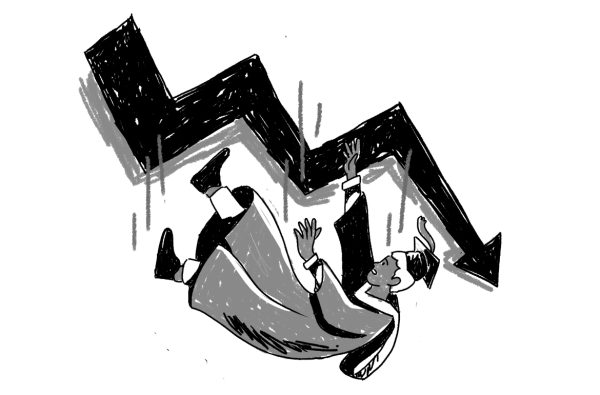The American education system, long heralded as a pathway to opportunity and prosperity by people such as my immigrant parents, is and has been failing its students. This is particularly obvious in the way we students feel burnt out, disillusioned and confused when we transition from high school to a setting of higher education.

American education causes heavy confusion over college and career choices and builds pressure on students to conform to career paths that adults preach will “get you a job” from the ripe age of 10. Now we have a generation of young people who, rather than feeling empowered to pursue higher education, feel overwhelmed, anxious and unprepared for what lies ahead.
It places relentless pressure on students to conform to rigid academic structures. From a young age, we’re funneled through a system that emphasizes standardized testing and rote memorization over creativity and real-world problem-solving. Success is measured by test scores rather than true understanding or passion for learning.
I still remember my seventh grade teacher saying that, “It doesn’t really matter if you like to read those books. Read your textbooks.”
By the time we reach high school, we’ve already been taught to value grades and test results above all else, with little importance put towards focusing on intellectual curiosity or individual growth. Many students like myself were pushed toward Advanced Placement (AP) courses, honors classes, Advanced International Certificate of Education (AICE), RunningStart, International Baccalaureate (IB) and other rigorous and competitive classes. I filled my time with extracurricular activities I wasn’t even interested in solely to boost my resume for college applications. The result of all this pushing is a culture of academic burnout, with students becoming exhausted before we even begin our college careers.
Burnout is not just an academic issue; it’s a mental health crisis. Students are entering college already depleted, struggling to cope with the pressure to excel in an environment even more hyper-competitive than high school. The rise of anxiety, depression and other mental health challenges among students is a direct result of our education system that prioritizes achievement over well-being.
With the little support given in high school to develop emotional resilience, time management or stress-relief techniques, we arrive at college unprepared for the pressures of higher education. The results are disastrous. Many students like myself struggle to balance academic expectations with personal challenges, which contributes to increased dropout rates, academic underperformance and mental health breakdowns that could lead to someone taking their life.
The world around us rapidly changes yet we are still being taught in ways that are disconnected from reality. The curriculum in most schools remains deeply focused on traditional academic subjects with no emphasis on skills that are crucial for success in both college and the future workforce. Few of us got to leave high school knowing how to manage our finances, think critically about complex global issues or adapt to new technologies and forms of conceptualization. The actual gap between what we’re taught and what we need to be taught leaves students floundering once they enter college, where the expectations are vastly different and independence is crucial.
Even as young adolescents navigate the hurdles of high school, they are bombarded with the expectation that they must pursue higher education. It isn’t enough to finish your basic education anymore. There isn’t time to dwell on what you really want to do with your life.
“A bachelor’s degree is the new high school diploma.” Americans are told to pursue undergraduate school without a second thought, often without a clear understanding of why or what we want from it. The American media makes it seem as if getting an education here is the best thing that could happen to anyone and missing out on the opportunity of a “American education” is a grave mistake when that simply isn’t true. The U.S. is less than 5 percent of the world population. It isn’t the overarching umbrella of a model education. We must recognize that higher education is not the only path to success. Trade schools, apprenticeships and other alternative education models should be given equal respect and support.
The American education system itself is long overdue for reform. We need to move away from the one-size-fits-all approach and work on creating a system that nurtures individual passions, teaches practical skills and fosters mental and emotional well-being. By prioritizing critical thinking, creativity and adaptability, we can better prepare students not just for college, but for life. Only then can America say that we truly prepare our students for the challenges and opportunities of the future and are worthy of the “higher quality of education” reputation.

